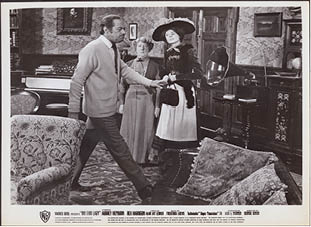These. Those. That. Three. Thumb. Through.
Not all endangered species are animals. Like it or not, the “the” sound is disappearing from the English language.
Evidence suggests globalization makes the English language more diverse than homogeneous. As a result, some sounds are still disappearing and rapidly evolving.

“Take David Beckham for example. He says ‘free sons’ instead of his ‘three sons,'” said Rachel Paxton, senior linguist student. “It’s called ‘th fronting,’ and its evidence of the ‘th’ sound disappearing.”
Right now ‘th fronting’ is only prevalent in England, but other changes are taking place in the United States. Linguists say Americans’ vowels are changing in three regional shifts: the Northern shift, the Western Shift and the Southern Shift.
The Northern shift originated in the Great Lakes areas, but it is spreading. It sounds like a Canadian or Wisconsin accent. “Bag” becomes “bayg.”
The Western shift originates in California. Vowels are placed in the middle of the mouth, like a surfer. The accent is relaxed as vowels blend together. For example “bed” and “bad” start to sound more similar as Westerners eliminate vowel sounds. The Northern shift and Western shift are similar in this trend.
The Southern shift is moving a different direction linguistically than the rest of the U.S. A Southern accent actually has more vowel sounds than the Northern or Western accents. This may be why the majority of Americans think the South has an accent but the rest of the country does not. Southerners will pronounce “pen” like “pay-en,” using more vowel sounds.
“Vowels are very unstable,” said Don Chapman, a BYU historical linguist professor. “They are always shifting because our writing system is unstable.”
The English language uses five characters for vowels sounds — “a, e, i, o, and u” — but English has 15 vowels sounds in reality. For example, “apple,” “dawn,” “dare” and “dane” all use the letter “A” but represent different “A” sounds. This makes the English language unstable and leads to regional discrepancies.
Chapman says two things make language vulnerable to change. First, when sounds are unusual in other languages they are more likely to disappear. Second, when sounds are not supported by the writing system, like English vowels, those vowels will be pronounced differently by region.
“Think about when you imitate a French accent,” Chapman said. “You immediately change the ‘thee’ to a ‘zee’ sound. Or if you do an Irish accent, you change ‘think’ to ‘tink.’ Because ‘th’ is not common in other languages, it is more likely to die out.”
Globalization has led to more variations than similarities in language. English is becoming increasingly more diverse. Because English is spoken in so many parts of the world, there are many standardized forms. American English, British English, South African English and Australian English are all recognized forms of the same language. As English spreads to countries such as Hong Kong, the Chinese invent their own branch of English.
“Because of globalization more languages are legitimate,” Chapman said. “European countries put their own slant on English, and they do not accept the British English as the necessarily correct, even if it is their second language. There is no longer one correct form.”
BYU linguistics professor Wendy Baker said globalization does not change the language we speak because human interaction is necessary to change accents.
“Globalization hasn’t changed all our language patterns,” Baker said. “We need human interaction to really change.”
But with the convenience of modern transportation, it would seem more likely that speech patterns become similar as we interact with one another. Instead, English speakers are becoming more and more diversified.
Chapman and Baker agree that people tend to imitate the accents of those they admire, but Baker said “we are seeing more celebrations of regional English” in the last few decades.
“This is especially true in lower socio-economic classes,” Baker said. “They tend to have more pride in their languages, especially males. Men hold onto colloquialism more than women. Having a street accent or Jersey Shore accent is manly.”
People also tend to reject accents of classes they do not want to imitate.
“Maybe that’s why the ‘Valley Girl’ accent dies out,” Chapman said. “It didn’t overtake the West because it had a negative stigma from the start. Society rejects it.”
But no matter what region people are from, English is a messy language. English is in the process of evolving on a global stage, leaving many linguists to ask big questions.
“We’re not more isolated now,” Chapman said. “We’re not farther in geography or economics. Why is this?”
English speakers are moving toward differentiation at the expense of some endangered sounds.




